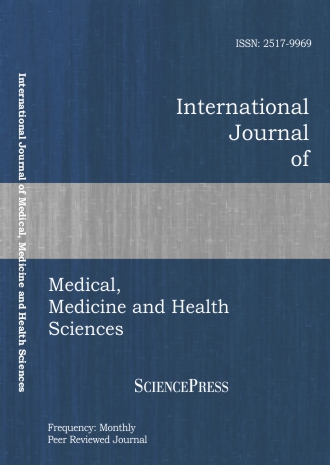
Scholarly
Volume:5, Issue: 4, 2011 Page No: 155 - 158
International Journal of Medical, Medicine and Health Sciences
ISSN: 2517-9969
Study of Peptide Fragment of Alpha-Fetoprotein as a Radionuclide Vehicle
Alpfa-fetoprotein and its fragments may be an important vehicle for targeted delivery of radionuclides to the tumor. We investigated the effect of conditions on the labeling of biologically active synthetic peptide based on the (F-afp) with technetium-99m. The influence of the nature of the buffer solution, pH, concentration of reductant, concentration of the peptide and the reaction temperature on the yield of labeling was examined. As a result, the following optimal conditions for labeling of (F-afp) are found: pH 8.5 (phosphate and bicarbonate buffers) and pH from 1.7 to 7.0 (citrate buffer). The reaction proceeds with sufficient yield at room temperature for 30 min at the concentration of SnCl2 and (Fafp) (F-afp) is to be less than 10 mkg/ml and 25 mkg/ml, respectively. Investigations of the test drug accumulation in the tumor cells of human breast cancer were carried out. Results can be assumed that the in vivo study of the (F-afp) in experimental tumor lesions will show concentrations sufficient for imaging these lesions by SPECT.